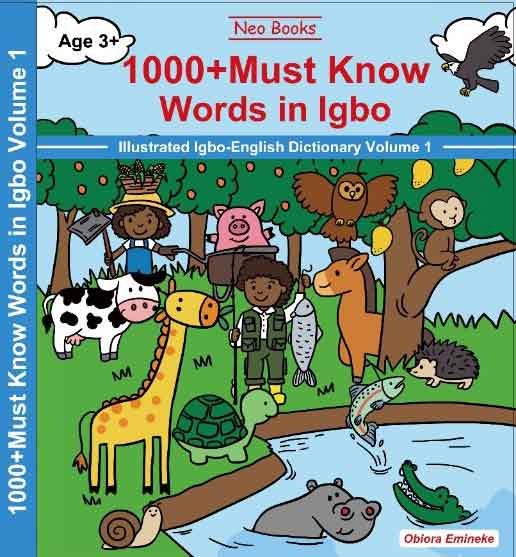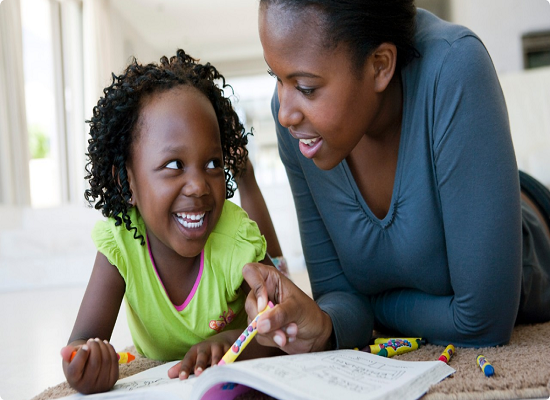
In many Nigerian homes, parents may speak different languages especially in intertribal marriages, which can create a dilemma when deciding which language to teach their children first. This situation can lead to confusion, tension, or even conflict between the paternal and maternal families.
However, teaching children their Nigerian language is crucial for preserving their cultural heritage and identity.
Language is a vital part of a person’s culture and plays a significant role in shaping their values, beliefs, and customs.
Here are some tips to consider:
One Parent, One Language (OPOL) approach
In the OPOL approach, each parent speaks their native Nigerian language to the child.
This method can be effective in teaching children multiple languages at the same time.
For example, if the father speaks Igbo and the mother speaks Yoruba, the child will learn both languages through consistent exposure to those languages.
Minority Language At Home (MLAH) Approach
This involves speaking the minority language at home and the majority language outside the house.
This method can help children develop a strong foundation in the minority language.
This approach can help the child develop a strong foundation in the minority language.
Let’s consider an example of a Nigerian family living in Lagos, where the majority language spoken is Yoruba.
Meet the Okoros, a family with two parents, Uche and Nneoma, and their 5-year-old daughter, Chiamaka.
Uche is from the Igbo-speaking part of Nigeria, while Eka is from the Efik-speaking part.
In this family, Igbo and Efik are minority languages, as they are not the dominant languages spoken in Lagos.
However, Uche and Eka want to teach Chiamaka their native languages to connect her to their cultural heritage.
To achieve this, they decided to implement the Minority Language at Home (MLAH) approach.
They designated Igbo as the minority language at home, while Nneomwas spoke Efik to Chiinaka during their mother-daughter bonding time.
Code-switching
Code-switching involves switching between languages in a single conversation, and it is quite popular now.
This approach can help children learn to explore multiple languages and understand the context in which each language is spoken.
For example, a parent might say, “Bia’, let’s go buy some coconuts.” (Biameansg comes in Igbo).
This code-switching helps the child learn vocabulary and phrases in different languages.
Time And Place Approach
The Time and Place Approach involves allocating specific languages to specific locations.
For example, a Yoruba family might decide that their children speak English only in school and when they go to church, Yoruba only at home and only when visiting the village.
This approach helps children develop a sense of context and switch between languages accordingly.
Language Immersion Approach
This approach involves surrounding children with a language through various activities, media, and interactions, such as watching Nigerian movies or cartoons, listening to music or podcasts, reading books or comics, and participating in cultural events or festivals, to help them naturally pick up the language.
For example, a kiddies program, Bino and Fino, on YouTube teaches children Igbo, Hausa, and Yoruba languages.
Mixed Language Approach
This approach combines elements of multiple languages in a single conversation.
It can help children develop a more flexible and adaptable approach to language use and promote creative expression and problem-solving.
For example, a parent might say to their child, “Let’s go eat some ‘akara’ (Yoruba for bean cakes) and ‘puff-puff’ ( for fried dough), but first, ‘i ga kwo aka gi’(Igbo for you’ll go and wash your hands)”.
This mixed-language approach can help children develop a strong foundation in multiple languages and promote linguistic creativity.
In All Of These, Remember To:
Make language learning a fun and enjoyable experience for your children.
Use games, songs, and stories to engage them in the learning process.
This not only makes learning more exciting for them but also helps them retain the language better.
Remember, the more fun they have, the more motivated they’ll be to learn.
Also Read: 1000+ Must-Know Words In Languages
Connect with other families who speak the same language.
This can provide opportunities for the child to practice speaking and listening.
Learning a language is a journey that takes time and effort.
Be patient with your child and celebrate their progress, no matter how small.
Understanding that language learning is a gradual process will help you and your child stay motivated and committed to the learning journey.
Respect And Appreciate Both Languages
Avoid comparing or prioritising one language. Instead, focus on promoting a positive attitude towards both languages.
In conclusion, by following these tips, parents can help their children develop a strong foundation in their Nigerian language and promote a lifelong appreciation for their culture.
Find more resources on parenting here.



